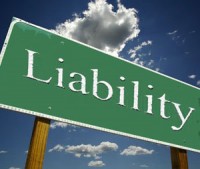
Mensah v. CorVel Corp. (Nev. Supreme Ct. – Aug. 6, 2015)
In this workers’ compensation case, a self-employed injured worker challenged an appeals officer’s order that denied him temporary total and partial disability benefits on the basis that he could not establish a loss of any income without evidence of a salary.
The issue is for self-employed individuals, does the lack of a salary associated with typical employment prevent an average monthly wage calculation for the purpose of determining lost income and rendering a workers’ compensation benefit decision.
Mensah was a self-employed delivery driver who contracted with FedEx Home Delivery for one of its delivery routes. Under his service contract, he was required to maintain workers’ compensation insurance, which he did through CorVel Corporation. While delivering packages, Mensah fell and injured his shoulder. Mensah’s workers’ compensation claim for his shoulder injury was accepted, and he received medical treatment. He was later released to light-duty work, but with his physical restrictions, he could not complete his delivery route and instead hired a replacement driver until he canceled the service contract. Mensah requested temporary disability benefits, which were denied on the basis that he continued to receive the same compensation under the FedEx service contract as he did before the injury occurred. Mensah administratively appealed, and the appeals officer denied both temporary total disability benefits (TTD) and temporary partial disability benefits (TPD) because Mensah did not produce any documentation showing that he had paid himself a salary of $1,425 per week as he claimed, and thus, any difference between his pre-injury and post-injury income could not be determined. The district court denied Mensah’s petition for judicial review. Mensah appealed.
The Nevada Supreme Court explained that generally, an employee who is injured by accident arising out of and in the course of employment is entitled to receive as TPD the difference between the wages earned after the injury and the benefits that the injured person would be entitled to receive if temporarily totally disabled, when the wages are less than the amount of those benefits. “Wages” means the amount of money that an employee receives for the time the employee worked. The statutes, however, do not specifically explain how a self-employed person’s wages are to be calculated.
The Court noted that Mensah suffered an industrial injury. This made him eligible to receive temporary disability benefits, calculated based on any loss in wages caused by the injury. The appeals officer concluded that Mensah was not entitled to those benefits because his salary could not be established from his personal and corporate income tax filings and he could not produce any paystubs or other evidence of a salary. But, Mensah was self-employed, and thus, the Court believed it was reasonable that he did not pay himself a salary in the typical sense.
The Court explained that the record clearly showed that Mensah received compensation from FedEx Home Delivery under his service contract, and he paid another employee to complete his delivery route during the time that he was medically restricted from doing so, demonstrating a loss to Mensah’s business income. And, although substantial evidence supported the appeals officer’s determination that Mensah had not established that he received a salary from his business, the appeals officer did not determine whether the documentation—including the Form 1099-MISC showing Mensah’s compensation from FedEx Home Delivery, the copies of paystubs showing wages paid to the replacement driver, and financial statements indicating Mensah’s business income and expenses—credibly established a loss to Mensah’s earnings, which may consist of more than just salary.









